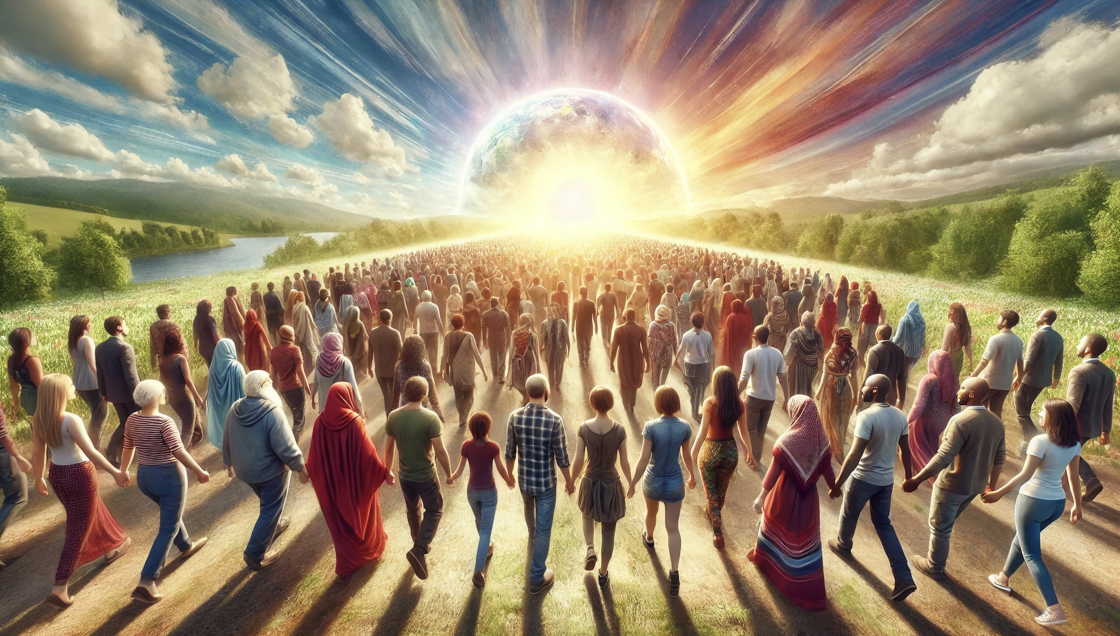In today’s interconnected global society, conversations surrounding racism, slavery, and inequality dominate the headlines. Many see these issues as byproducts of colonialism or the transatlantic slave trade—terrible yet relatively recent chapters in human history. However, the roots of racism and slavery extend far deeper, not by hundreds but by hundreds of thousands of years. These social diseases predate written history, emerging long before modern civilizations formed their first cities. They have been part of the human experience since the earliest days of our existence, spanning across different continents, cultures, and societies.
Understanding the historical origins of racism and slavery requires a deep dive into the evolution of humanity itself. By tracing the complex interrelation between tribalism, fear of the “other,” and the institutionalization of inequality, we begin to unravel a narrative that continues to haunt our world today. Yet, as we examine this grim past, we must also remember our collective potential for change. The final and most crucial lesson is that humanity has always been capable of compassion, and moving forward, we must embrace kindness, empathy, and unity over division.
The Earliest Roots of Discrimination: Tribalism and Fear of the “Other”
- Early Homo sapiens (~300,000 years ago): From an anthropological standpoint, the instinct to discriminate based on differences is as old as humankind itself. Early humans, like their hominin ancestors, lived in small, tight-knit groups or tribes, and survival required cooperation within one’s group.
- Tribalism and survival: For early human communities, anything unfamiliar was seen as a potential threat. This fear of the unfamiliar, or the “other,” created a basic form of discrimination, though it wasn’t yet racial in nature.
- Migration out of Africa (~60,000 years ago): As early human populations spread across the globe, different groups adapted to various environments, developing distinct physical and cultural traits. As these differences became more apparent, so too did the inclination to view outsiders with suspicion, setting the foundation for early forms of discrimination.
Slavery in Prehistoric Societies: A Grim Reality
- Hunter-gatherer societies (~200,000 years ago): Long before written history, domination over others was a factor in inter-tribal relations. When one group conquered another, the defeated were sometimes taken as captives or slaves. This marked the beginning of a primitive form of slavery.
- Development of agriculture (~10,000 years ago): As human societies began to settle and rely on agriculture, the need for labor increased. Enslaving captives became a way to meet labor demands, with early civilizations institutionalizing the practice of slavery.
The Institutionalization of Slavery in Ancient Civilizations
- Mesopotamian, Egyptian, and Chinese civilizations (~5,000 to 3,000 BCE): As early civilizations developed, so did the need for more structured labor systems. These societies formalized slavery, with slaves playing a critical role in agriculture, construction, and domestic life. Slavery became deeply woven into the fabric of these early societies.
- The Greco-Roman world (~500 BCE to 400 CE): In ancient Greece and Rome, slavery was not only pervasive but also legally institutionalized. Slaves were regarded as property, and although slavery was primarily a consequence of conquest rather than race, certain ethnic groups became more associated with servitude over time. This created a social structure based on inequality, laying a foundation for future racialized slavery.
The Atlantic Slave Trade: Racial Slavery Takes Hold
- Transatlantic slave trade (~16th to 19th centuries): The transatlantic slave trade represents one of the darkest periods in human history, during which millions of Africans were forcibly transported to the Americas to be enslaved. This trade was driven by European colonial expansion, and slavery during this era was explicitly racial. Africans were subjugated solely based on the color of their skin, and this racialized system of slavery justified brutality and exploitation on an unprecedented scale.
- Racism as a justification: Racism became the ideological foundation for the Atlantic slave trade. Europeans and Americans rationalized the enslavement of Africans by constructing an ideology that painted African peoples as inherently inferior. This justified not only slavery but also the continued subjugation and discrimination of people of African descent long after the official end of the slave trade.
Racism and Slavery in the Modern World: A Legacy of Injustice
- Abolition movements and the end of legal slavery (19th century): The abolition of slavery in the 19th century, beginning with the British Empire in 1833 and followed by the United States in 1865, marked a significant turning point in history. However, the economic and social structures built on centuries of slavery did not simply vanish. Former enslaved peoples continued to face extreme discrimination, poverty, and exclusion from civil society.
- Post-abolition racism and systemic inequality (20th and 21st centuries): Despite the legal abolition of slavery, racism persisted. In many countries, institutionalized racism became codified in laws and social practices, creating a legacy of inequality that continues to impact marginalized groups today. Modern manifestations of racism are seen in economic disparities, unequal access to education and healthcare, and the disproportionate incarceration of people of color.
The Path Forward: Embracing Unity, Kindness, and Personal Character
As we look back at the long and troubling history of racism and slavery, it becomes clear that these social constructs have long been used to justify exploitation and oppression. However, it is equally important to recognize that human history is also filled with stories of compassion, resistance, and progress. From abolitionists to civil rights leaders, countless individuals have fought to challenge these oppressive systems and build a more just world.
Moving forward, it is vital for all of us to acknowledge both the deep historical roots of racism and slavery and the ways in which they continue to manifest in our world. True progress requires us to confront uncomfortable truths about our past and present while also committing ourselves to a future defined by empathy and understanding.
We must remember that judging one another based on appearance, race, or background is not only wrong but contrary to our shared humanity. As societies, we should shift our focus to personal character, actions, and kindness—qualities that transcend superficial differences. By fostering empathy and understanding, we can break the cycle of hatred and division that has plagued humanity for millennia.
Building a Future of Compassion and Equality
Racism and slavery are, tragically, as old as human history itself. They are ingrained in the fabric of ancient civilizations, and their legacies persist today. But while these dark aspects of our past may seem insurmountable, it is essential to remember that human beings are capable of change. Just as fear and division have shaped our past, love, empathy, and unity can shape our future.
We must learn from history, not to dwell on its tragedies but to ensure they are not repeated. Every individual has the power to reject the old systems of division and embrace a new way of living—one rooted in understanding and mutual respect. By focusing on personal utility, character, and kindness, rather than the arbitrary lines that have divided us for so long, we can collectively build a more equitable and compassionate world. The future, as ever, lies in our hands.
Let’s choose love over hate, unity over division, and character over appearance.


